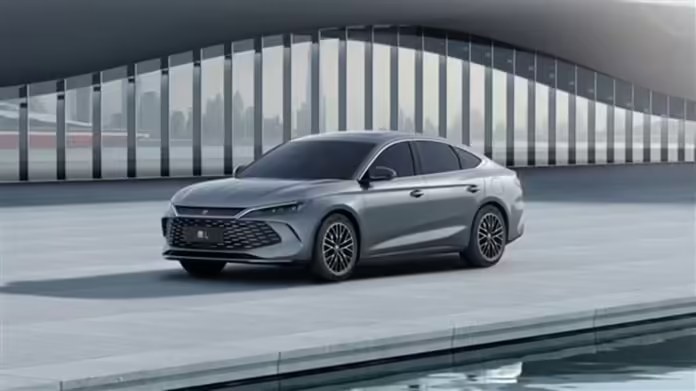Electric vehicle charging technology is advancing swiftly, driven by innovations in battery technology. Both the range and charging speed of EVs have significantly improved in recent years.
Historically, the main challenge with electric vehicles has been their long charging times, which hindered their practicality for long-distance travel. However, this issue is on the verge of being resolved. Chinese battery giants BYD and CATL are gearing up to unveil ultra-fast-charging lithium iron phosphate (LFP) batteries capable of fully charging in just 10 minutes.
BYD and CATL aim to launch these groundbreaking batteries by the end of the year, promising to eliminate the need for lengthy charging stops during road trips. The rapid charging capability is made possible by their upcoming models, the BYD Blade 2.0 and CATL Qilin 2.0, boasting a 6C charging rate. Essentially, the “6” denotes that these batteries can be charged at six times their capacity. For instance, a battery with a capacity of 100 ampere-hours can handle a charging current of 600 amperes.
However, upgrading the charging infrastructure is crucial to support these high speeds effectively. Without such upgrades, users of vehicles equipped with these advanced batteries may not fully capitalize on their technology, instead relying on slower charging options. It’s important to note that these batteries cannot sustain peak charging speeds throughout the entire cycle.
To optimize user experience, manufacturers are likely to emphasize strategic charging scenarios, such as charging from 10 percent to 80 percent in just 10 minutes. The 2024 Zeekr 001 is a notable example with its 5C-rated battery, achieving this range in 11.5 minutes of charging time. Details about the upcoming 6C batteries from BYD and CATL are still emerging, but reports suggest that existing DC fast chargers designed for 4C-rated batteries can deliver up to 480 kW of power and a maximum current of 615 amperes. To achieve even faster charging, adjustments in voltage or amperage will be necessary, a process currently underway.
Huawei recently installed its first 600 kW fast charger in China earlier this year. Additionally, Li Auto, known for its Mega minivan offering a 500 km range in 10 minutes of charging, plans to deploy 5,000 5C-rated fast chargers by next year. In the United States, Tesla’s Supercharger network sets the standard with its V3 stall providing up to 250 kW of power for DC fast charging.
Clearly, the future of EV charging is heading towards progressively faster charging times, setting the stage for enhanced convenience and efficiency in electric vehicle usage.
